TGA confirms Pfizer provisionally approved for use in Aussie children aged 5 to 11
Australian children aged 5 to 11 will soon be able to receive Pfizer. Here’s the side effects health authorities are expecting.
The Therapeutic Goods Administration has confirmed it has provisionally approved the Pfizer Covid-19 vaccine for use in Australian children aged five to 11.
In a statement released on Sunday, the TGA announced that subject to final consideration from expert immunisation panel ATAGI, and other related approvals, the government will start rolling out the Pfizer vaccine to under 12s from January 10 next year.
Children aged five to 11 who eventually receive the jab can expect to experience similar side effects to adults who received Pfizer, according to TGA head John Skerritt.
The most common side effects of Pfizer in adults are sore arm, tiredness, fatigue, headache, fever and chills.
Early tests also indicate that children under 12 are likely to experience less severe versions of the common side effects seen in adults.
Some children may not even experience any side effects at all.
“The children had some of the same things that adults get tiredness or arms, headache, and so forth,” Dr Skerritt said.
“But these tended to be brief and fairly short lived.”
The dose of Pfizer set to be used in children aged five to 11 will be one-third of the amount approved for those aged 12 and over.
Immunology expert Kylie Quinn said that in tests conducted on children under 12, doses one-third of the size of the adult dose were just as effective at protecting kids against the virus as the full adult dose.
“They showed pretty clearly that the level of immunity was the same across all those different doses,” Dr Quinn told the ABC on Sunday.
“But in the higher doses there were slightly more cases of fever immediately after getting the vaccine”
“This is something we commonly see with vaccines in children – we can reduce the dose and achieve the same level of immunity but we can avoid some of those side effects that we all get after getting vaccines.”
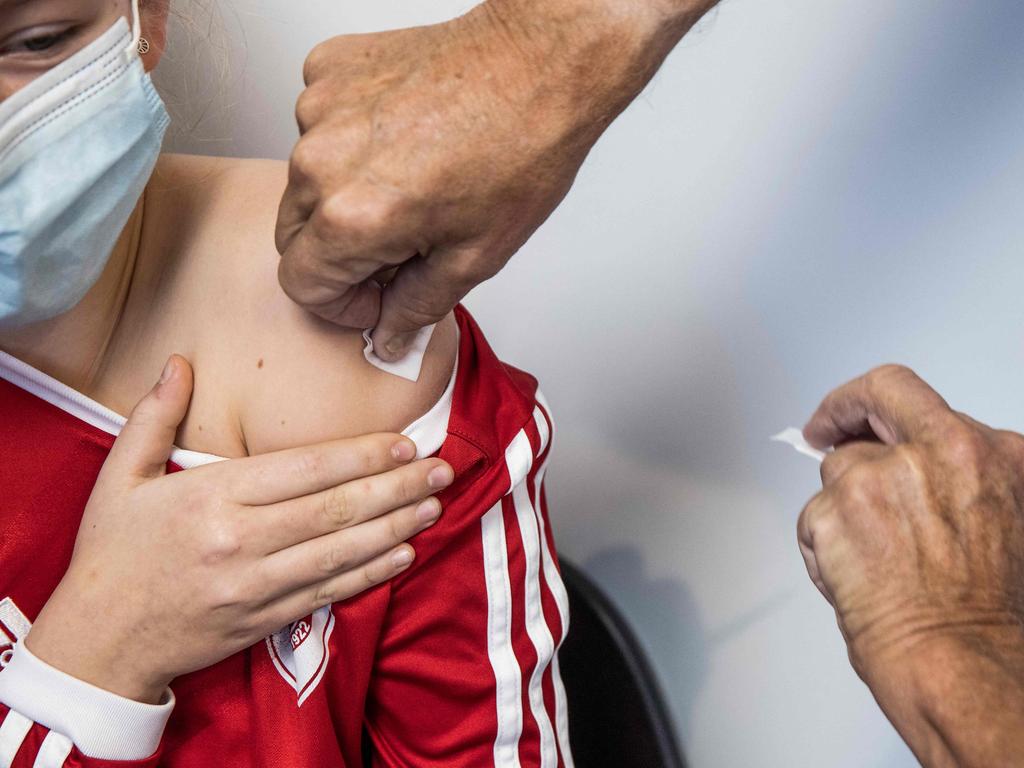
Professor Skerrit said the Pfizer jab had been “extensively clinically tested” in children under 12, including a trial of almost 2500 children aged five to 11.
“In that trial, over 1500 received the vaccine and the response of the body, the immune response, was identical to that in the young adults,” he said.
Although children usually only experience a mild infection when they catch Covid-19, Prof Skerritt said that on balance, it would still be safer to vaccinate under 12s than to not.
“Unfortunately, about one in 3000 of the kids who get Covid actually end up with this funny immunologic condition called multi system inflammatory condition,” Prof Skerritt said.
“Those kids can end up being very sick for months. It's not the same as long Covid but it has some things in common.
“It has a whole range of symptoms where a kid is just not well – and that's one of the things we're protecting against by vaccinating children.”
Prof Skerrit said the mental health effects of the pandemic on children were also a consideration that weighed in favour of vaccination.
“I couldn‘t imagine if I was a young kid having two years of interrupted school, not being able to play sport, and all the normal social things catching up with friends,” he said.
“The social and educational and sporting and physical development of these kids has been affected by Covid.
“The ability to vaccinate those kids so that they can return to those activities and parents can be confident they can return to those activities is a real step ahead.”
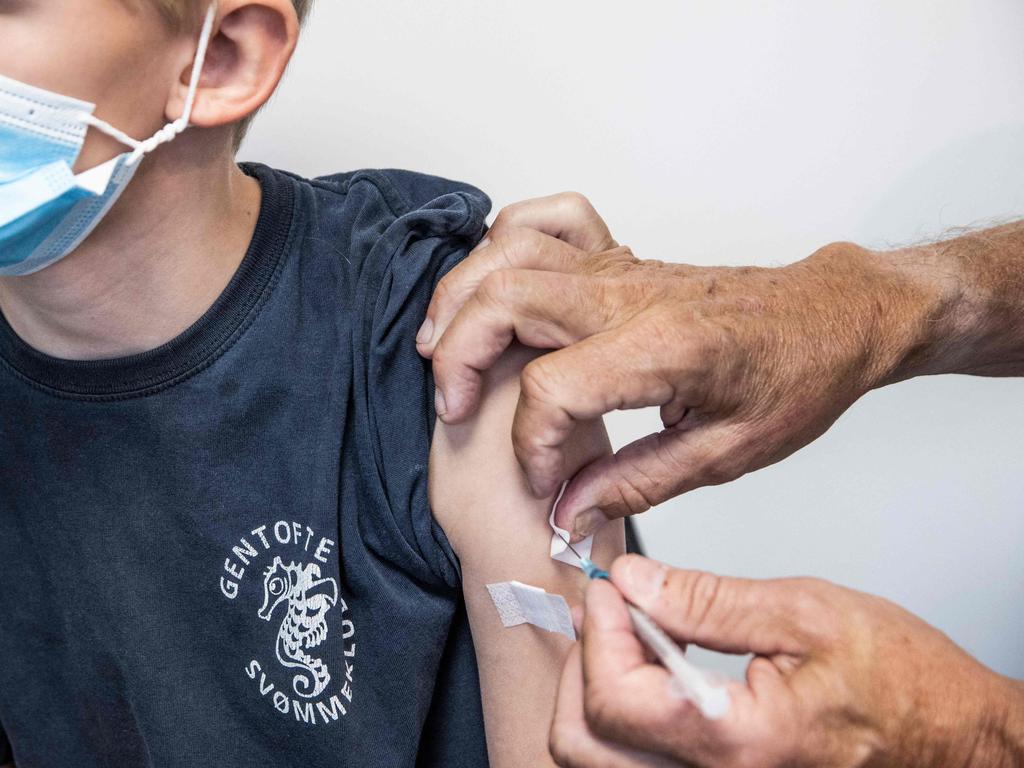
The government expects to receive ATAGI’s recommendations on how to incorporate the use of Pfizer in children into Australia’s Covid vaccination program over the coming weeks.
Given the lower dose requirement, the TGA said the vaccine for under 12s would be distributed to vaccine providers in different packaging to the vaccine approved for the rest of the population.
“It will be clearly differentiated by being dispensed from orange-capped vials instead of grey or purple capped vials,” the TGA said.
As with other age groups, the use of Pfizer vaccine in children aged five to 11 will be given in two doses at least three weeks apart.
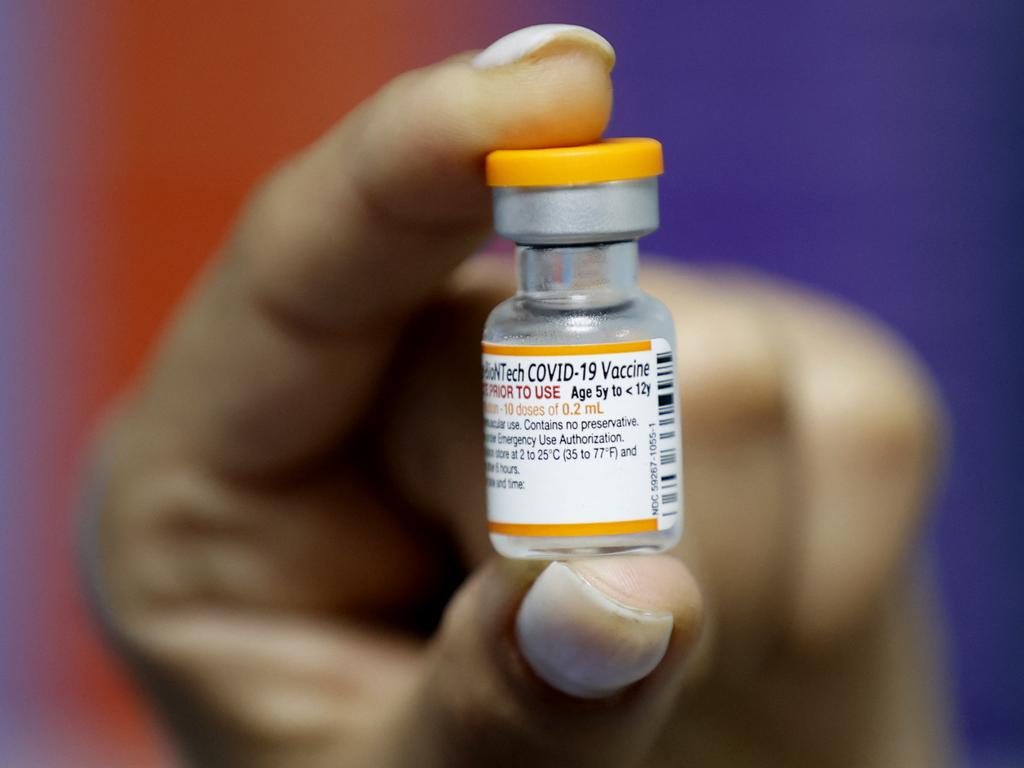
Health Minister Greg Hunt said the TGA’s provisional approval was the first of four critical steps focused on the safety and effectiveness of vaccinating Australian children.
“The first is the TGA approval, the second is the recommendation of ATAGI – we are expecting that in the coming weeks,” Mr Hunt told reporters in Melbourne.
“The third then is training in relation to the use of the Pfizer vaccine in paediatric cases or for children five to 11, and then finally it is the batch testing, which is done by the TGA.”
Mr Hunt said the TGA batch testing team would be working through Christmas and the new year to attempt to meet the provisional commence date of the rollout of the vaccine for under 12s to January 10.
The government is confident that deadline will be met following promising preliminary results from ATAGI, according to Mr Hunt.
“The early advice is ATAGI have been working in parallel with the TGA throughout and there are no red flags. So our expectation is that ATAGI are set to approve (Pfizer) following the TGA,” he said.
“ATAGI will operate independently and we are expecting that advice in the coming weeks.”
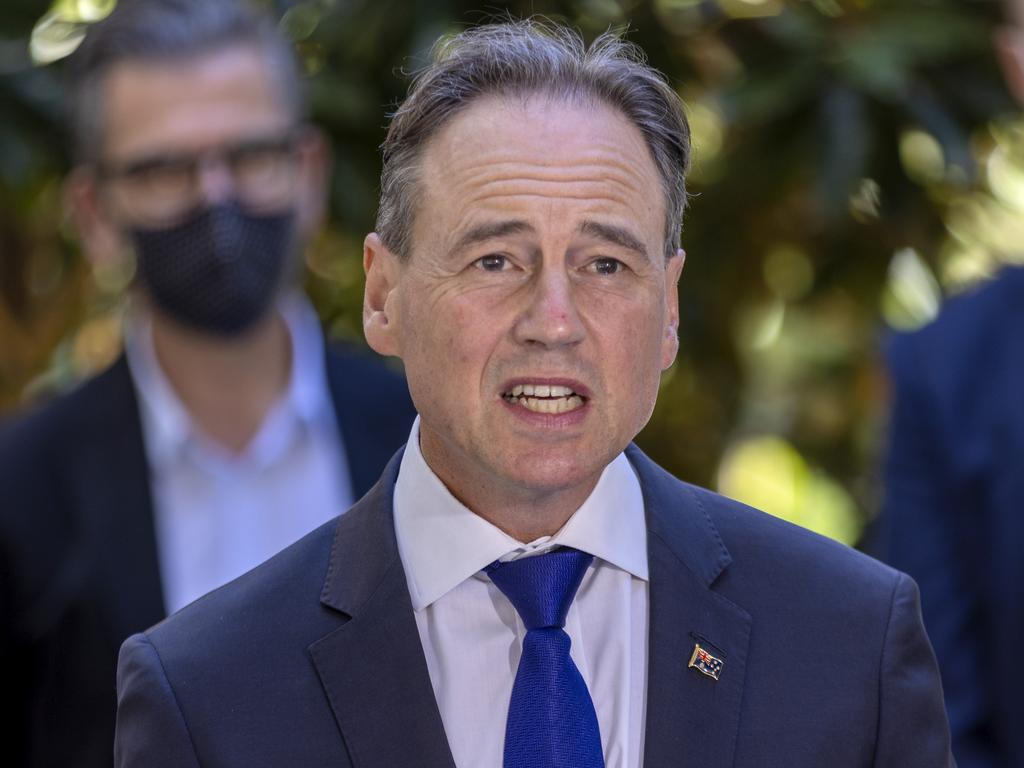
Despite the expected change in Australia’s Covid vaccine age requirements, Mr Hunt made it clear this should not change the national reopening plan.
Queensland Premier Annastacia Palaszczuk has raised concerns about reopening her state’s borders while children remain unvaccinated.
When asked whether Ms Palaszczuk may now hold off opening Queensland’s borders until children under 12 hit the 80 per cent vaccination threshold, Mr Hunt insisted this was not in accordance with the national plan.
“There is no reason for that,” he said.
“The Doherty modelling was set out very clearly on the 80 per cent rates for double dosed across the country for 16 plus, and what we have seen now is that in terms of the 12 to 15-year-olds, we have now had an extra 1.8 million vaccinations over and above the Doherty modelling.
“The Doherty modelling was based on an 80 per cent national rate for double dosed and didn't include 12 to 15-year-olds.”
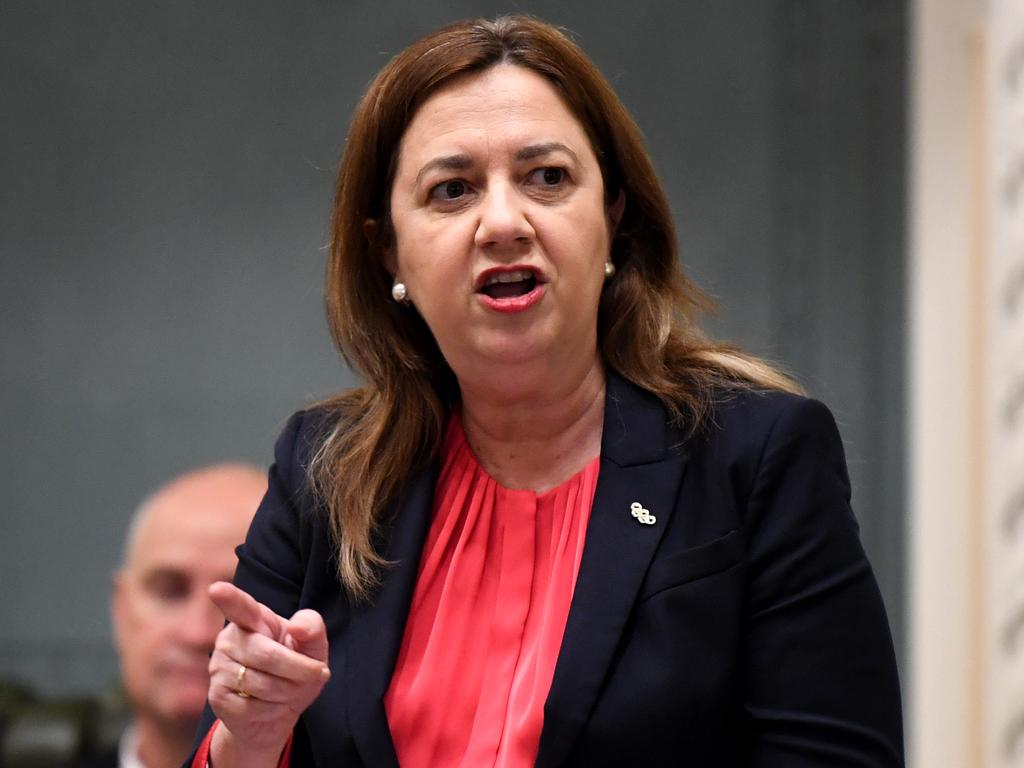
The TGA said the inclusion of under 12s in the vaccine rollout would add further momentum to the speedy uptake of the jab across the country’s child population.
“Subject to advice from ATAGI, vaccinating the approximately 2.3 million children aged 5 to 11 in Australia will build on the rapid uptake of vaccination among children aged 12 to 15.”
“In just eleven weeks, more than 76.6 per cent of this group have had at least one dose of vaccine, with 67.5 per cent having completed their two-dose course of vaccination.”
Once the final ATAGI advice is received, the TGA says further information on how to book a Covid-19 vaccination for under 12s will be provided.
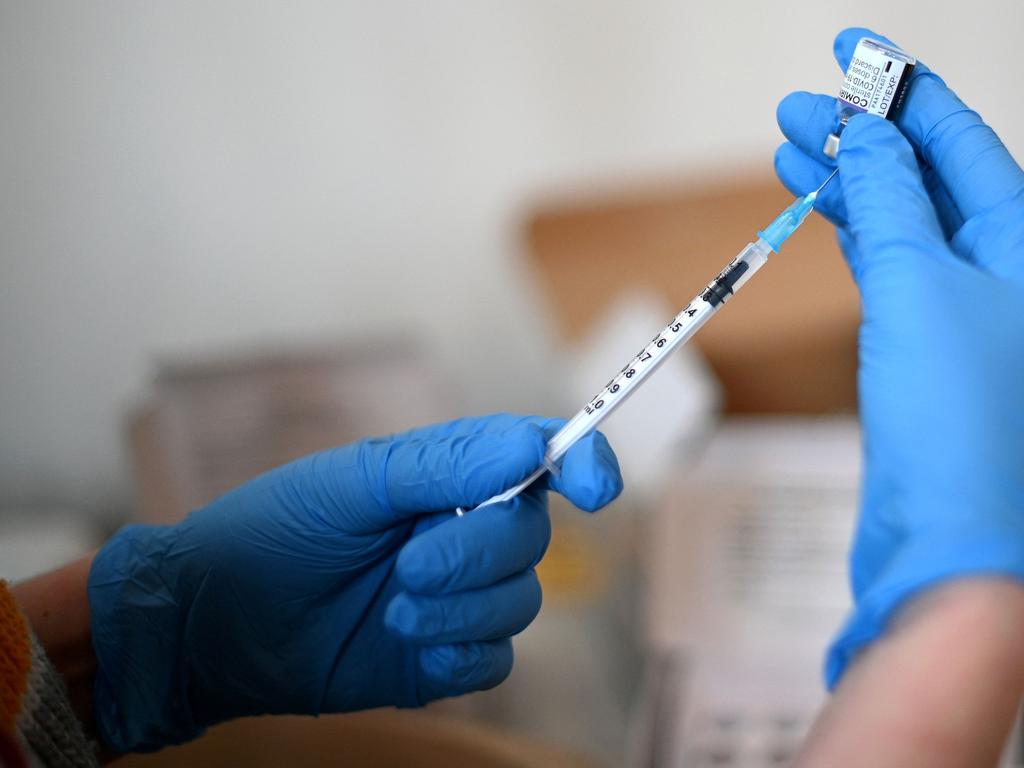
Mr Hunt urged parents to prepare for a January 10 commencement date of the new rollout.
“The message for Australians is very clear. From 10 January, Australian children will have access to Pfizer vaccines, and it is recommended for children right across Australia,” he said.
“It is about keeping our kids safe, keeping our families safe, keeping all Australians safe.”
Originally published as TGA confirms Pfizer provisionally approved for use in Aussie children aged 5 to 11



